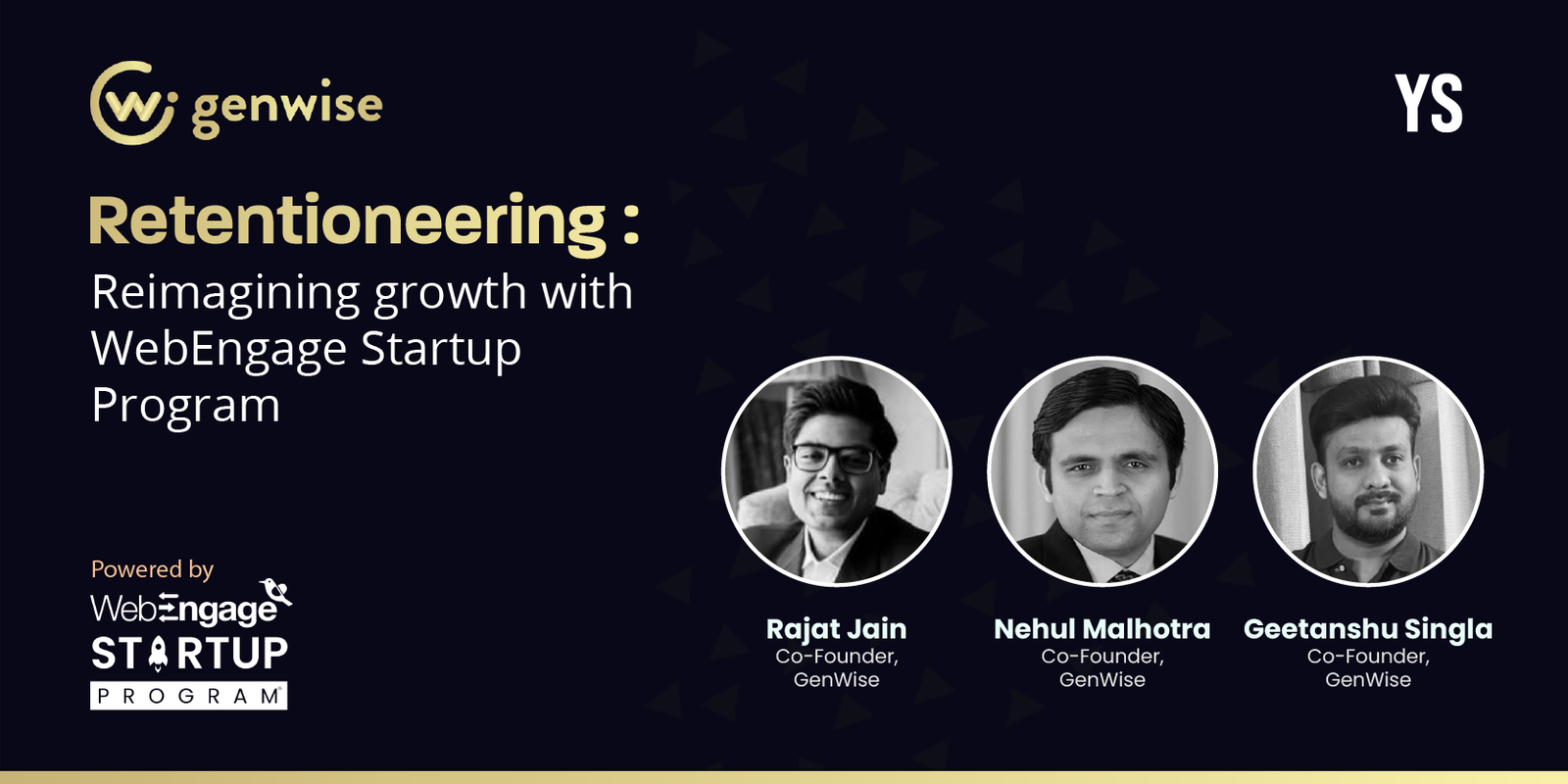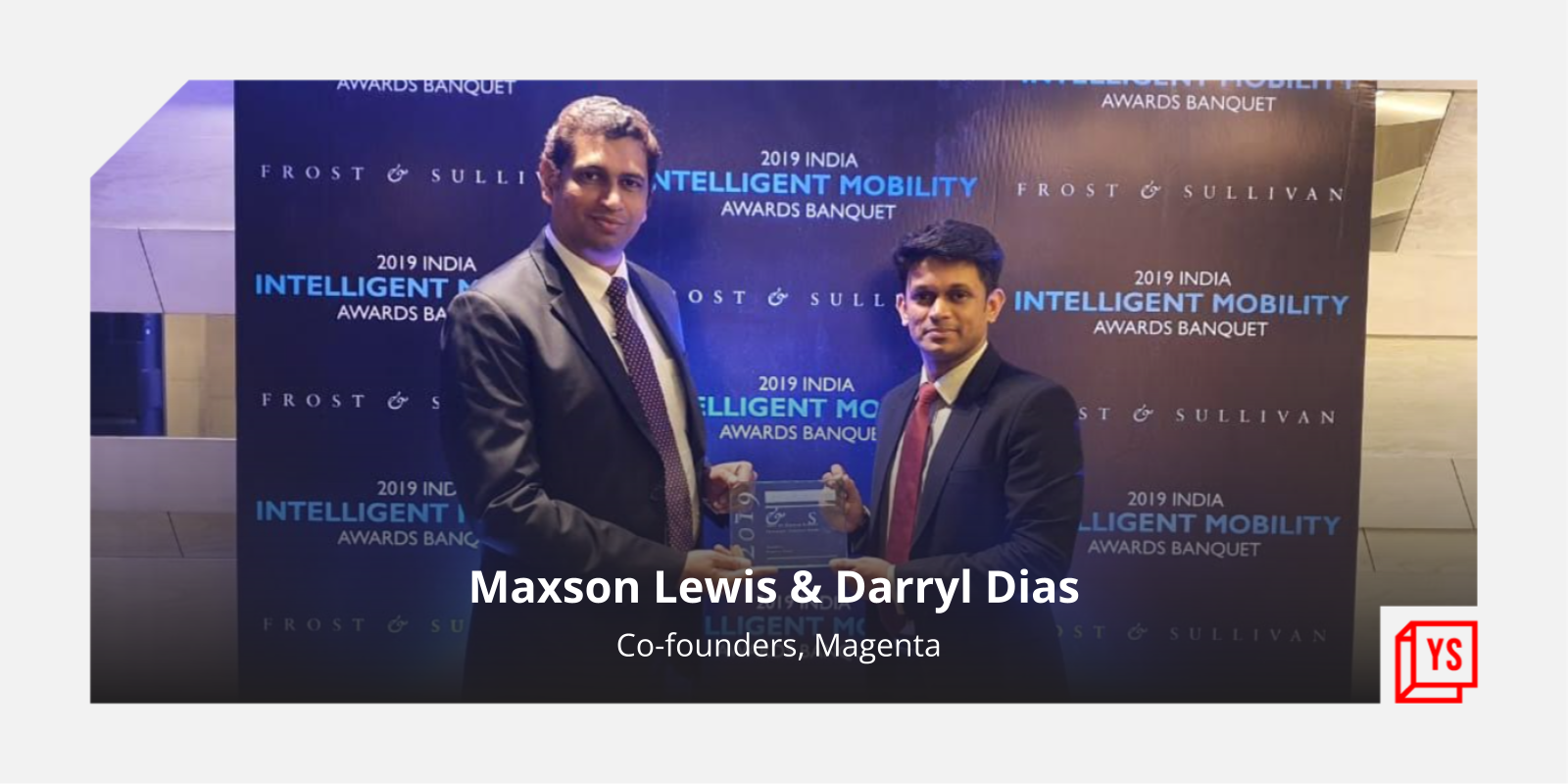Startup
GenWise’s online club is helping elders escape loneliness

Picture this: A 60-year-old retired school teacher hesitantly downloads an app on her smartphone. Her children insist it will help her stay connected, but she’s sceptical. Fast forward three months and she is now attending online tambola sessions, chatting daily with her new “digital best friend”, and even teaching others how to use the app. Welcome to the world of GenWise, where digital literacy meets elder empowerment.
In the heart of Delhi, a startup is quietly revolutionising the way India’s seniors interact with technology. GenWise, founded in 2023 by Rajat Jain and his co-founders Nehul Malhotra and Geetanshu Singla, has turned the notion of “apps are for the young” on its head. With a staggering 1.6 million users in less than 18 months it is proving that age is just a number in the digital world.
From loneliness to laughter: The GenWise mission
“Our vision is to take an elder from loneliness to laughter,” says Rajat Jain, Founder of GenWise. This isn’t just a catchy slogan; it’s the driving force behind the innovative online club for Indian elders aged 50-70. In a country where joint families are dwindling and elderly isolation is on the rise, GenWise is more than an app—it works as a lifeline.
However, in a market where acquiring users is challenging, retaining them is an art form. GenWise has mastered this art, achieving remarkable retention rates of up to 80% in the first month for some paid services. How? By understanding that for its unique audience, retention isn’t just about numbers—it’s about creating lasting value and meaningful connections.
The GenWise app offers three key services: Saathi (one-on-one companionship), Friends (a platform to make new friends), and Events (group activities). Each service is designed with retention at its core. As Jain explains, “Users keep coming back to talk to Saathi and share life updates, get advice, and build greater bonds with friends through games, greetings, and chats. Our events around learning, relaxation, and entertainment keep users engaged throughout the week.”
Monetisation from day one
Unlike many startups that chase user numbers at the cost of revenue, GenWise took a bold approach. “We wanted to test whether elders are comfortable paying online to consume our product,” Jain says. The result? A resounding success, with over 95% of payments made by elders themselves.
This micro-transaction model not only ensures sustainable growth but also reinforces user engagement. As Jain advises, “Be clear on your monetisation model on day one, even if you don’t apply it immediately. You can’t be building a large user base or going after vanity metrics for a long period in your company.”
WebEngage Boost: Turning data into delight
To supercharge retention efforts, GenWise turned to the WebEngage Startup Program. This partnership has been instrumental in helping the company map user journeys, improve UI/UX, and automate communication to drive both retention and monetisation.
“Platforms like WebEngage have helped us identify user paths and patterns easily, enabling us to automate user journeys and communication to drive retention and monetisation,” Jain acknowledges. “The WebEngage Startup Program has been supportive with a free six-month trial, reducing the burden on a young startup such as ours during our formative stages.”
The impact of WebEngage on GenWise’s operations has been substantial. In the first year, the focus was on solving digital acquisition and engagement challenges. WebEngage’s event tracking and engagement journey tools were instrumental in achieving this goal. As GenWise entered its second year of operation, the focus shifted to monetising services and identifying power user cohorts. Here, WebEngage’s advanced segmentation and targeted messaging capabilities came into play. “WebEngage helps us reach out to the right users at the right time to boost our monetisation efforts,” Jain explains.
This data-driven approach has allowed GenWise to tailor its offerings and communication strategies, ensuring that each user receives personalised attention – a crucial factor when dealing with an older demographic that values individual care and attention.
From Delhi to the world
With plans to solve loneliness for 250 million Indian elders and expand internationally, GenWise is just getting started. But amidst this ambitious scaling, its focus remains unwavering. “Creating a value chain from acquisition to engagement to retention is pivotal,” Jain says. “Reaching out to the user at the right time for further engagement and cross-selling has helped us build stronger metrics.”
As GenWise continues to grow, it is not just retaining users— it is reshaping what it means to age in the digital era. From sceptical first-time downloaders to enthusiastic power users, the elders on GenWise are proving that it’s never too late to find community, purpose, and yes, even a little laughter, through the power of technology.
This story is the eighth in a series called Retentioneering, where new-age startups share with us their experience of working with the WebEngage Startup Program and how it helped them with various retention efforts.
Startup
Magenta Mobility’s FY24 revenue rises three fold, losses widen by 17.1%

Magenta Mobility on Thursday reported a 199.5% jump in its full-year revenue to Rs 35.53 crore compared to Rs 11.86 crore in the previous year helped by a significant rise in its revenue from services.
The company provides a 100% electric fleet and AI and IoT-enabled fleet management and data analytics platform to optimise logistics operations and deliveries. Revenue from these services for the year ended March 31, 2024, increased to Rs 30.17 crore compared to Rs 10.15 crore in FY23.
However, the company reported a 17.1% increase in its loss for the period to Rs 46.44 crore as opposed to Rs 39.66 crore in FY23, bogged down by rising expenses during the year. The 109.1% rise in expenses to Rs 90.17 crore was primarily due to rising driver costs, employee benefit expenses, and finance costs.
Magenta Mobility appoints drivers on a contract basis to provide services to its customers, which it accounts as an expense. The drivers’ cost for FY24 increased to Rs 18.49 crore, compared to Rs 6.34 crore in FY23.
The rise in demand for the company’s fleet comes amidst a boom in the last-mile delivery sector in India owing to the rise of ecommerce and quick commerce players. Magenta Mobility caters to clients such as Flipkart and hyper-local delivery platform Dunzo, among others.
Founded in 2017 by Maxson Lewis and Darryl Dias, the company last raised $22 million in a Series A funding round from BP Venture and Morgan Stanley India Infrastructure-managed investment fund.
Startup
Juspay cuts losses by 7.7% as revenue surges 49.6% in FY24

Payments startup Juspay Technologies saw its losses narrowing in FY24 as revenue growth outpaced expenditure. It narrowed its total loss for the period to Rs 97.54 crore, down 7.76% from Rs 105.75 crore in FY23.
According to the consolidated financial statements accessed from the Registrar of Companies, the SoftBank-backed fintech firm’s revenue from operations surged 49.64% to Rs 319.32 crore, up from Rs 213.39 crore in FY23.
Juspay’s primary revenue source—payment platform integration fees—brought in Rs 286.52 crore. Additional operating revenue from services like product implementation and support added Rs 32.80 crore.
Total expenses rose by 29.52% to Rs 443.74 crore in FY24, compared to Rs 342.59 crore in the previous year. This increase was largely driven by employee benefit expenses, which saw a 41.73% jump to Rs 303.36 crore, while other expenses increased slightly over 3.56% to Rs 123.76 crore.
Juspay, founded in 2012 by Vimal Kumar and Ramanathan RV in Bengaluru, specialises in developing payment orchestration solutions that act as a technology layer over traditional payment gateways.
The Accel-backed startup has also developed Namma Yatri, a mobility app focusing on ride-hailing services, leveraging Juspay’s strengths in payments and open-source protocols. Namma Yatri is built on the Beckn Protocol and aligns with the Open Network for Digital Commerce (ONDC), aiming to provide low-cost ride-hailing options and open access to digital mobility services.
Recently, Juspay decided to spin off Namma Yatri as an independent entity to attract separate investors and scale further. In February, the company said it acquired LotusPay in an all-cash deal to strengthen its offerings to the BFSI segment and merchants.
LotusPay, founded in 2016, pioneered NACH Debit technology with cloud-based software for merchants and banks. Using NPCI’s NACH Debit, it facilitates recurring payments for loans, insurance, and subscriptions.
Startup
Flipkart selects five startups for third cohort of Flipkart Leap Innovation Network

has selected five innovative startups for the third cohort of its flagship startup accelerator programme, Flipkart Leap Innovation Network (FLIN).
The cohort is introducing startups that are driving advancements across GenAI, omnichannel, analytics, and video commerce, the company said in a statement.
The selected startups— Intelligence Node, Invenzo Labs, StoryBrain, Phyllo, and D-ID— are set to run pilot programs with Flipkart to develop solutions.
“The selected startups get access to mentorship, resources, and the opportunity to execute pilot projects within the Flipkart ecosystem, scaling their solutions to meet the demands of India’s digital economy and e-commerce growth,” the company said.
Since its launch in 2022, the accelerator programme aims to accelerate the growth of the startup ecosystem in India, driving collaboration, and championing cutting-edge retail innovations.
“Through the FLIN programme, Flipkart continues to expand its role as a catalyst for innovation within India’s startup ecosystem, providing a collaborative platform for startups to test, refine, and deploy solutions that can shape the future of e-commerce in India,” said Naren Ravula, Vice President and Head – Product Strategy and Flipkart Labs.
The programme is designed to engage with startups through commercial partnerships in Flipkart’s areas of interest. Successful startups get the opportunity to scale up to a business partnership.
Over 20 startups from the initial two cohorts have concluded pilots working closely with the Flipkart Product and Engineering teams.
The company added that four startups from the previous cohort— Anagog, Speedsize, Sangti, and Vtion— have recently concluded successful pilot projects with Flipkart.
-

 Startup Stories1 year ago
Startup Stories1 year agoWhy Millennials, GenZs Are Riding The Investment Tech Wave In India
-

 Startup Stories1 year ago
Startup Stories1 year agoStartups That Caught Our Eyes In September 2023
-

 Startup Stories1 year ago
Startup Stories1 year agoHow Raaho Is Using Tech To Transform India’s Fragmented Commercial Trucking
-

 Startup Stories12 months ago
Startup Stories12 months agoMeet The 10 Indian Startup Gems In The Indian Jewellery Industry’s Crown
-

 Crptocurrency8 months ago
Crptocurrency8 months agoLither is Making Crypto Safe, Fun, and Profitable for Everyone!
-

 Startup Stories1 year ago
Startup Stories1 year agoHow Volt Money Is Unlocking The Value Of Mutual Funds With Secured Lending
-

 Startup Stories1 year ago
Startup Stories1 year agoWhy Moscow-Based Kladana Considers Indian SME Sector As The Next Big Market For Cloud Computing
-

 E-commerce1 year ago
E-commerce1 year agoTop Online Couponing Trends To Watch Out For In 2016




